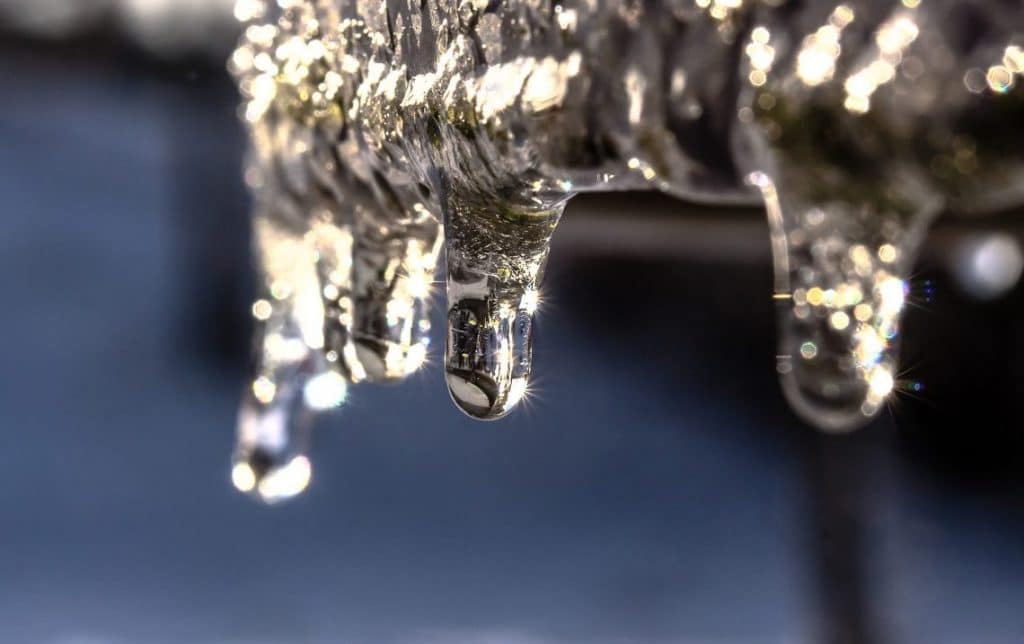Crucial Tips for Avoiding Frozen Plumbing in Winter Seasons
Crucial Tips for Avoiding Frozen Plumbing in Winter Seasons
Blog Article
Every person is bound to have his or her own thinking about 6 Ways to Prevent Frozen Pipes.

Winter can wreak havoc on your pipes, particularly by freezing pipes. Here's exactly how to prevent it from taking place and what to do if it does.
Introduction
As temperatures decrease, the risk of icy pipelines rises, possibly leading to expensive repair services and water damage. Comprehending how to avoid icy pipelines is vital for house owners in cold climates.
Prevention Tips
Insulating susceptible pipes
Cover pipes in insulation sleeves or utilize warm tape to safeguard them from freezing temperature levels. Concentrate on pipes in unheated or external locations of the home.
Heating techniques
Keep indoor rooms appropriately heated, especially locations with plumbing. Open cabinet doors to permit cozy air to distribute around pipes under sinks.
How to identify frozen pipelines
Search for reduced water circulation from taps, unusual odors or sounds from pipes, and visible frost on exposed pipelines.
Long-Term Solutions
Structural changes
Consider rerouting pipes away from outside walls or unheated areas. Include additional insulation to attics, cellars, and crawl spaces.
Upgrading insulation
Purchase high-quality insulation for pipes, attics, and wall surfaces. Appropriate insulation helps keep regular temperatures and reduces the threat of frozen pipelines.
Shielding Exterior Plumbing
Yard hoses and exterior faucets
Disconnect and drain pipes yard hose pipes prior to winter season. Set up frost-proof spigots or cover outdoor faucets with protected caps.
Comprehending Frozen Pipelines
What creates pipes to freeze?
Pipes ice up when subjected to temperature levels listed below 32 ° F (0 ° C) for expanded durations. As water inside the pipes freezes, it increases, taxing the pipeline walls and possibly creating them to rupture.
Threats and problems
Icy pipes can bring about water system interruptions, building damage, and pricey fixings. Ruptured pipes can flood homes and create comprehensive structural damages.
Indicators of Frozen Pipes
Recognizing frozen pipelines early can avoid them from breaking.
What to Do If Your Pipes Freeze
Immediate actions to take
If you presume frozen pipes, keep faucets open up to ease pressure as the ice melts. Make use of a hairdryer or towels taken in hot water to thaw pipelines gradually.
Verdict
Preventing frozen pipes requires aggressive measures and quick feedbacks. By recognizing the reasons, indicators, and safety nets, house owners can protect their plumbing during winter.
Helpful Tips to Prevent Frozen Pipes this Winter
UNDERSTANDING THE BASICS: WHY PIPES FREEZE AND WHY IT’S A PROBLEM
Water freezing inside pipes is common during the winter months, but understanding why pipes freeze, and the potential problems it can cause is crucial in preventing such incidents. This section will delve into the basics of why pipes freeze and the associated problems that may arise.
THE SCIENCE BEHIND FROZEN PIPES
When water reaches freezing temperatures, it undergoes a physical transformation and solidifies into ice. This expansion of water as it freezes is the primary reason pipes can burst. As the water inside the pipe freezes, it expands, creating immense pressure on the walls. If the pressure becomes too great, the pipe can crack or rupture, leading to leaks and water damage.
FACTORS THAT CONTRIBUTE TO PIPE FREEZING
Low Temperatures: Extremely cold weather, especially below freezing, increases the risk of pipes freezing. Uninsulated or Poorly Insulated Pipes: Pipes located in unheated areas, such as basements, crawl spaces, or attics, are more prone to freezing. Insufficient insulation or lack of insulation altogether exacerbates the problem. Exterior Wall Exposure: Pipes running along exterior walls are susceptible to freezing as they encounter colder temperatures outside. Lack of Heating or Temperature Regulation: Inadequate heating or inconsistent temperature control in your home can contribute to frozen pipes. PROBLEMS CAUSED BY FROZEN PIPES
- Pipe Bursting: As mentioned earlier, the expansion of water as it freezes can cause pipes to burst, resulting in significant water damage.
- Water Damage: When pipes burst, it can lead to flooding and water damage to your property, including walls, ceilings, flooring, and personal belongings.
- Structural Damage: Prolonged exposure to water from burst pipes can compromise the structural integrity of your home, leading to costly repairs.
- Mold and Mildew Growth: Excess moisture from water damage can create a favorable environment for mold and mildew growth, posing health risks to occupants.
- Disrupted Water Supply: Frozen pipes can also result in a complete or partial loss of water supply until the issue is resolved.
WHY CERTAIN PIPES ARE MORE PRONE TO FREEZING
- Location: Pipes located in unheated or poorly insulated areas, such as basements, crawl spaces, attics, or exterior walls, are at higher risk of freezing.
- Exterior Pipes: Outdoor pipes, such as those used for irrigation or exposed plumbing, are particularly vulnerable to freezing as they are directly exposed to the elements.
- Supply Lines: Pipes that carry water from the main water supply into your home, including the main water line, are critical to protect as freezing in these lines can affect your entire plumbing system.
- Underground Pipes: Pipes buried underground, such as those connected to sprinkler systems or outdoor faucets, can be susceptible to freezing if not properly insulated.
https://busybusy.com/blog/helpful-tips-to-prevent-frozen-pipes-this-winter/

I found that page on 6 Ways to Prevent Frozen Pipes while exploring the web. Do you know anybody else who is excited about the subject? Do not hesitate to promote it. We take joy in reading our article about How To Avoid Freezing Pipes.
Request Your Service Report this page